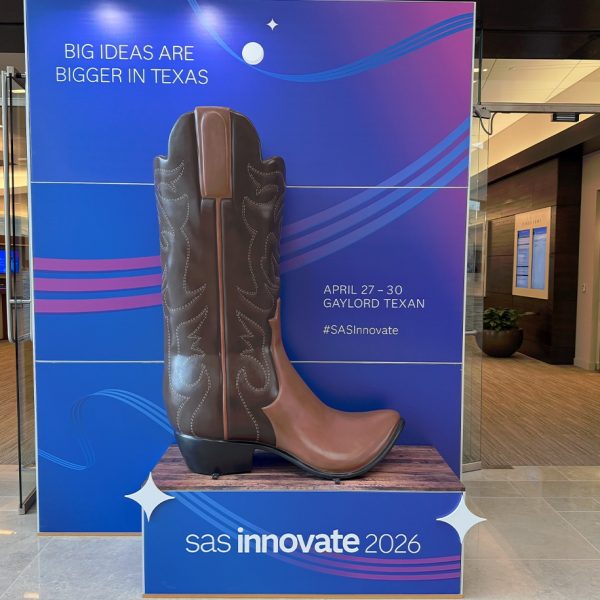I'm a big believer in both/and thinking, so I'll stand squarely in the middle and say that the most important skills for competitive advantage in analytics include a combination of top-notch modeling abilities along with business acumen, critical thinking, and curiosity. I was intrigued by a blog post on this topic from AllAnalytics.com, where editor Beth Schulz began with the provocative title "Quants Not so Necessary for Predictive Modeling?" She takes her cue from a recent TDWI best practices report on "Predictive Analytics for Competitive Advantage," where among other things they shared the results of a survey on the skills necessary to perform predictive analytics. More than two thirds of respondents agreed that knowledge of the business, critical thinking, and understanding of the data are essential. Agreement then begins to diminish, with 41% citing training in predictive analytics but only 34% agreeing on a degree in this field.
Greta Roberts of Talent Analytics has her own angle on this question, based on a study they did of analytics professionals themselves to profile their traits. Beyond the obvious findings their research points to curiosity and creativity, as well as discipline, as top attributes to look for when hiring this kind of talent. But when I am in conversations with our customers I hear varying opinions on this question. Some say these skills don't all exist in one person, which is why they have teams. Others believe that the key is training the quants in the "soft skills."
A solid foundation in the fundamentals of a quantitative discipline provides an excellent start for a career in analytics, and those who come into analytics from other paths will find themselves going back to learn things they hadn't studied in school. It can be a tough slog to try to catch up on linear algebra at night. But the "math" alone won't solve a business problem. It is essential to understand the business context around a problem to formulate its solution. And then this proposed solution must typically be explained to a group of stakeholders that include at least some people without deep analytical training. And implementing most solutions involve collaborating across different business units with diverse background and training. So a much wider set of skills are necessary to go from problem to solution.
To highlight this challenge SAS teamed up with the Analytics Section of INFORMS for the Student Analytical Scholar Competition, which requires applicants to read a case study and submit a Statement of Work explaining how they would address the business problem in the case study. Naturally this requires analytical skills, but those skills alone don't lead to the best applications. In this interview, 2013 winner Alex Akulov talks about his perspective after finishing his bachelor's degree in math (with a minor on optimization). He assumed that when presented with a problem he would formulate it and then be done. "It's an optimal solution, so you present it to the manager and of course, he's going to say, "Yeah, let's do it because it's optimal." But how often does that ever happen?
Communication skills are essential as well, which is why this competition offers students a chance to ask questions as if they were consultants on the job interacting with the "customers." In this discussion forum (open until February 14 at 5:00 pm EST), they can query the individuals involved in the case study who will respond as they see fit. That will give applicants more information to incorporate into their submission, which is due by midnight on February 17. The winner will have their expenses paid to attend the INFORMS Conference on Business Analytics and Operations Researchin Boston March 30-April 1, where they will have a fantastic opportunity to attend sessions given by analytics practitioners and networks amongst them. Alex cited that experience as a great benefit of winning.
LinkedIn discussions are full of students asking what it takes to succeed in analytics. How would you advise them - what do you look for when hiring analytics teams?







2 Comments
Polly, absolutely, effective results requires a combination of skills, knowledge and personality; including knowledge of the business, critical thinking, and understanding of the data are essential. It is a challenge (finding individuals with this experience) and it can be developed and managed with the proper leadership. Frankly, understanding/managing the people side of this equation is most important and challenging. Organizations that manage their people will be significantly more successfully than investing big dollars in the hardware/software components. It all starts with asking the right business questions; making inferences and prescribing actionable activities (and repeat iterations).
Polly, you are absolutely right that useful, effective solution to business issues cast a much wider net than analytics alone, and analytics is a lot wider than just math.
In my opinion, the first thing to sort out is "do the right thing." Re-think the business problem, look at it from different perspectives, identify core issues, think creatively and innovatively about what the solution can look like. Choose best option forward. Only then proceed to "do the thing right", build each piece of the solution superbly with quality and speed, all the while ensuring they remain aligned to the end state.
One huge differentiating trait that I have seen over the years is genuine interest in understanding the business itself. Many good technical quants have failed to reach the next level because they are only interested in math. They don't bother to understand the intricacies of the process that generate the data they are analyzing. This, above all else, leads to inferior analytics because the tie between data and process is broken, the connection as to why the data is the way it is is lost. Analytics is, after all, the applied art of solving real world problems with science, not just theoretical algorithmic research devoid of context.
People have different skills, personality and preferences. Some prefer the technical aspects of "do things right"; some people prefer the architect role of "design right things", and yet others excel at carrying the message forward persuasively and driving implementation. There's room for all to contribute and, once in a while, you find the rare few that are polished in all three, they are worth their weight in gold. And the best of the best would tirelessly share and teach their mastery to others so that a whole team with strong analytics culture is formed, far surpassing the capability of any one individual.
At the end of the day, analytics is not about hardware/software/data/tools, it is an intellectual pursuit, it is about People, it is about Culture, it is about Passion.